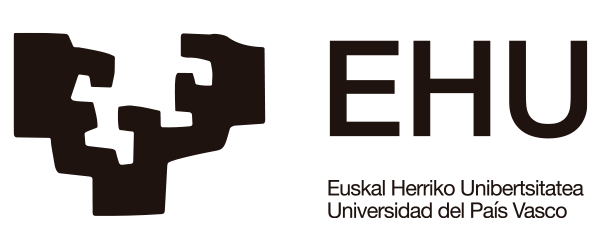authors
Project idea and direction: Rosa Estopà
Editors and linguistic revisers: Immaculada Creus, Ona Domènech, Rosa Estopà, Sílvia Grisó, Sílvia Llach, Laia Vidal-Sabanés; Ludovic Masson, Jorge M. Porras-Garzón, Laia Vidal-Sabanés; Mariona Arnau, Aida Celemín, Núria Clapés, Júlia Flores, Laura Llort, Marina Maimó, Lídia Ramos, Marta Roviralta, Miguel Sánchez-Ibáñez, Isabel Santamaria, Carla Solé, Claudia Tarragó, Ana Rosa Terroba, Yingfeng Xu.
Paediatricians, doctors and scientific reviewers: Jaume Francí, M. Àngels López, Lluís Mayol, Fernando Navarro, Esteban Rubinstein, José Manuel Sin, Pilar Vicente and Jonathan McFarland.
Translation and adaptation into Spanish: Núria Clapés, Lidia Ramos and Estela Servente; Immaculada Creus, Ona Domènech-Bagaria, Rosa Estopà, Jorge M. Porras-Garzón, Miguel Sánchezz-Ibáñez, Isabel Santamaria, Ana Rosa Terroba, Laia Vidal-Sabanés.
Translation and adaptation into Galician: Servizo de Normalización Lingüística. Universidade de Santiago de Compostela.
Translation andi adaptation into Basque: Vicerrectorado de Euskera y Planificación Lingúística de la EHU, Elhuyar (Nahiara Gabilondo, Amaia Astobiza).
Translation and adaptation into English: Aina McFarland Rojas.
Data management: Jorge M. Porras-Garzón; Rosa Estopà, Ludovic Masson, Ana Rosa Terroba; and Terminology students from the 2021-2022 academic year in Translation and Science of Language from the UPF, especially, Sílvia Bravo and Mar Fijo.


Authors of the drawings and the working lexicographical corpus: pupils from different schools in 4 autonomous communities:
Catalonia (coordination: Rosa Estopà):
- Escola Annexa-Joan Puigbert, Girona. Coordinador de centre (CC): Joan Parés
- Escola Escaladei, Cerdanyola del Vallès. CC: Núria Masip
- Escola Sant Jordi, Pineda de Mar. CC: Cristina Estopà i Txell Fàbregas
- Escola Sant Nicolau, Sabadell. CC: Magda Urgelés
- Escola Santiago Ratés, Vilajuïga. CC: Montse Planas de Farnés
- Escola Vallmanya, Sant Esteve de Palautordera. CC: Nara Montané
- Escola Vedruna Immaculada, Barcelona. CC: Daniel Badia
- Institut Escola Montseny, Breda. CC: Alba Maicas
- Institut Escola Oriol Martorell, Barcelona. CC: Anna Raya
- Institut Guindàvols, Lleida. CC: Imma Creus
- Institut S’Agulla, Blanes. CC: Núria Velàzquez
- Zer El Romaní, Montgai. CC: Ester Gili
La Rioja (coordination: Ana Rosa Terroba):
- C.E.I.P. Duquesa de la Victoria, Logroño. CC: Estrella Arauz Gómez-Cadiñanos
- Escolapios, Logroño. CC: Mónica Peralta Ramírez
- Escolapias Sotillo, Logroño. CC: Elena Fernández de Luco Marauri
- I.E.S. Comercio de Logroño, Logroño. CC: María Pajuelo Merino
Communities Centre (coordination: Nava Maroto and Miguel Sánchez Ibáñez):
- C.E.I.P. Seis de diciembre, Alcobendas (Madrid). CC: Julia García Marmolejo
- IES Alonso de Ercilla, Ocaña (Toledo). CC: Carmen de Soignie Fernández
- IES Universidad Laboral Zamora, Zamora. CC: Belén Rodríguez Hernández
Valencian Community (coordination: Isabel Santamaría):
- Colegio Almedia, Callosa d’en Sarrià. CC: Marina Verdú Cantó
- Colegio El Planet, Altea. CC: Àngela Guardiola López
- Colegio Les Rotes, Altea. CC: Klelia Echenique Lara
- Colegio público Altea la Vella, Altea la Vella. CC: Mª Carmen Rodenas Marín
- Colegio público El Blanquinal, Altea. CC: Mª Montserrat Fernández Fresneda
The management of this work would like to thank the team of teachers and professors from all the collaborating schools who made possible the systematic and constant work of elaborating the information with pupils from the second, third and fourth years of primary school in the 2015-2016, 2016-2017 and 2017-2018 academic years, as well as the third to sixth year pupils from the 2021-2022 and 2022-2023 academic years.
Atlas drawings: Naia Oliver.
Catalan and Spanish voices for the words in the dictionary: pupils in the sixth year of primary school in the 2018-2019 academic year at the Escola Annexa Joan Puigbert, as part of a project on Reading specialised texts out loud coordinated by the teachers Josep Hernández, Joan Parés (management and sound recording), Àlex Pepiol, Núria Pinsach and Isabel Vela.
Galician voices from the words in the dictionary: pupils from fifth and sixth grade of primary school in the 2023-24 school year, from the CEIP de Prácticas López Ferreiro from Santiago de Compostela, within the framework of the project Fai un trato co galego! A proposal coordinated by the Dynamisation Team of the Galician Language of this school.
Voices of the words in the Basque dictionary: pupils from sixth grade of primary school in the 2025-26 school year, from the CEIP Orokieta Herri Eskola from Zarautz, within the framework of the Community Service Project. A proposal coordinated by the committee for Linguistic Normalization of this school. Management and recording of the audios by Euskal Wikilarien Kultur Elkartea.
Voice of the introduction in Catalan and Spanish: Rosa Estopà
Voice of the introduction in Galician: Concepción Diéguez Diéguez. Reverso Comunicación.
Voice of the introduction in Basque: Miren Artetxe. Coordinated by Euskal Wikilarien Kultura Elkartea.
Voice of the introduction in English: Aina McFarland Rojas.
Digital adaptation and web maintenance: Estudi FGH.net.
Digital version coordination: Estudi Kalimba.
Development of Android app: Perception Technologies.
El Primer diccionari de medicina il·lustrat. Estopà, R. (dir.) was published in paper format by Publicacions (Publications) from l’Abadia de Montserrat in 2018, and in 2023, it was updated to Diccionari il·lustrat de medicina per a principiants (Illustrated Dictionary for beginners): https://youtu.be/IaZq5gJS_tg
In 2019, its paper format was published in a version adapted to Spanish Argentinian, under the title Primer diccionario de medicina ilustrado. Estopà, R. (dir.) by Ediciones del Hospital Italiano de Buenos Aires (Editions from the Italian Hospital in Buenos Aires): https://www.youtube.com/shorts/3ubUllhje4M?app=desktop and https://youtu.be/ZUVDHQI4N2M

collaborators
The editors would like to thank the teaching teams of all the schools that collaborated and made possible the systematic and constant work that served as the basis for the construction of the dictionary with the children during 2015-2018 and 2021-2023.
Acknowledgements: Gachi Degraf, Mercè Lorente, Daniel Luna and Xusto Alexandre Rodríguez Río.
The project has received advice and funding from the Colegio Oficial de Médicos de Girona (Official Medical School of Girona) and the IULATERM research group of the Institut de Lingüística Aplicada (Applied Linguistics Institute) of the Universitat Pompeu Fabra (Pompeu Fabra University).

The DIXIMED Portal has been developed, in line with IULATERM’s IULAMED, within the framework of various projects:
Jugant a definir la ciencia. IP: Rosa Estopà.
http://defciencia.iula.upf.edu/
RecerCaixa 2015: JUNTS. Avancem amb la ciència. ACUP y Obra Social “La Caixa”. Co-IP: Rosa Estopà.
https://www.upf.edu/web/medicina_comunicacio/junts
LEXCOVID – Joan Oró-2021 FCRI: Imaginaris de la pandèmia: la construcció d’un discurs científic en la població infantil a través de la conceptualització dels mots. IP: Rosa Estopà. https://www.upf.edu/web/iulaterm/lexcovid
LEXMED. Léxico médico y definición: la construcción dinámica del significado terminológico a través de un corpus lexicográfico escolar (Medical lexicon and definition: the dynamic construction of terminological meaning through a school lexicographical corpus) , reference PID2021-125906NB-I00/MICIN/AEI/10.13039/501100011033/FEDER, UE, financed by Ministerio de Ciencia e Innovación, Agencia Estatal de Investigación and Fondo Europeo de Desarrollo Regional. IP: Rosa Estopà. https://www.upf.edu/es/web/iulaterm/lexmed

dictionary
Lexicographical corpus of the dictionary in alphabetical order.
atlas
Illustrated plates about the human body and other contents related to health and medicine.
activities
Interactive games to approach the content of the dictionary in a fun way.
covid-19
Covid-19 is a highly contagious infectious disease caused by a virus, specifically, by a coronavirus called SARS-COV-2.







